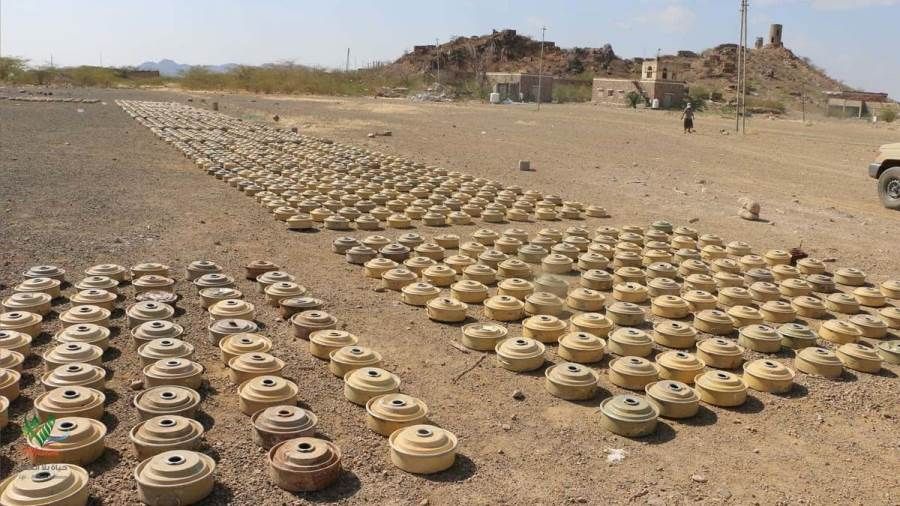
Houthi landmines removed in Yemen by the Saudi Project for Landmine Clearance (Masam) project are displayed in this file picture. (SPA)
Last updated on: 20-04-2025 at 12 AM Aden Time
|
|
Hodeidah (South24 Center)
A senior military source in Yemen’s Presidential Leadership Council (PLC) forces told ‘South24 Center’ on Saturday (April 19) that the Iran-backed Houthi group has planted large quantities of landmines around the strategic Red Sea port of Hodeidah, anticipating a potential ground offensive.
The source confirmed field reports of extensive minefields laid by the Houthis around the port and along key roads in Hodeidah city. "They’ve also mobilized reinforcements, with most fighters stationed in the 7th of July neighborhood, a southeastern district our forces entered in 2018 before the Stockholm Agreement," the source added.
The Houthi movements come in the wake of media reports suggesting PLC factions may launch a ground operation to retake Hodeidah port, leveraging air cover from the ongoing US strikes. A recent Wall Street Journal report cited US officials as being "open to supporting a local-led ground campaign" against the Houthis, though no final decision has been made. The report also noted that private US security firms have advised Yemeni factions, while the UAE, a key PLC backer, discussed plans with American officials.
Both the UAE and Saudi Arabia later denied involvement in planning any ground offensive, according to Reuters.
On Friday (April 18), US CENTCOM announced a precision airstrike targeting the Houthi-controlled Ras Isa fuel terminal in Hodeidah. Houthi media claimed the strike killed and injured 230 of civilian workers.
Video: Footage documented massive destruction at Ras Issa port in #Hodeidah following American airstrikes#south24 pic.twitter.com/rrEvWVpi6W
— South24 | English (@South24E) April 19, 2025
Ras Isa, a rudimentary port used to offload fuel directly from tankers, has, like Hodeidah’s two other ports, faced repeated strikes since July 2024 in retaliation for Houthi attacks on Israel, preceding the current US campaign that began on March 15 this year
Hodeidah became a focal point in 2018 when Saudi/UAE-backed Yemeni forces (primarily the southern Giants Brigade) advanced rapidly along the western coast, seizing the city’s southern and eastern outskirts—including its international airport—before international pressure led to the Stockholm Agreement.
The deal averted a humanitarian catastrophe (the port handles 70% of northern Yemen’s imports) but allowed the Houthis to retain control, which the Yemeni government claims they exploit to smuggle Iranian weapons and fund their war effort.